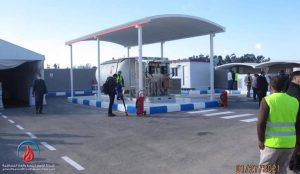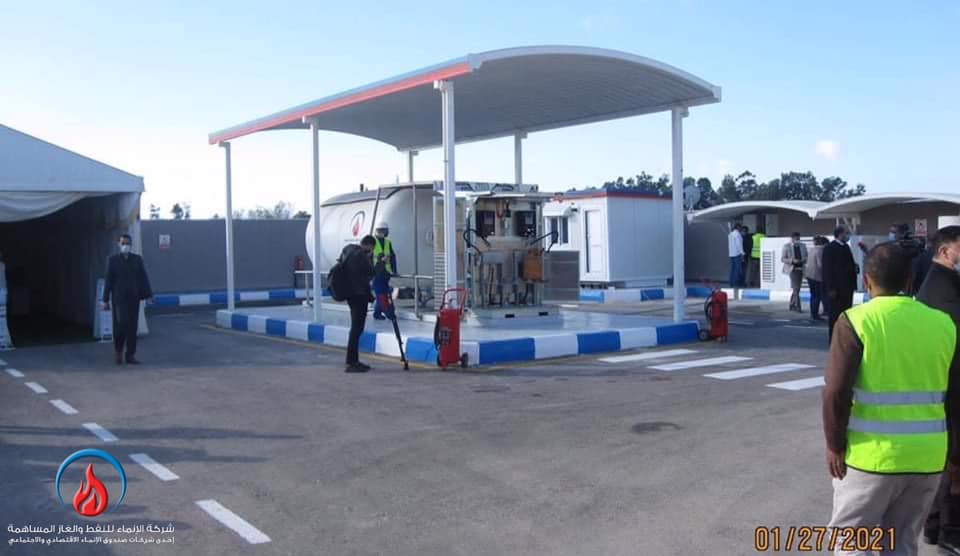By Sami Zaptia.

London, 28 January 2021:
The Enmaa Oil and Gas Company’s Airport Road domestic gas cylinder filling station was officially opened on Wednesday (26 January) in the presence of VIPs including the company’s chairman, Deputy Economy Minister, and several local mayors.
Al-Enmaa is one of the Economic and Social Development Fund (ESDF) group of companies established under the former regime.
Enmaa said the filling station will play a major role in filling domestic gas cylinders for Tripoli, saving consumers time and effort in obtaining their cylinders. It reminded that it plans to establish a number of these filling stations across Libya as part of its business strategy.
The filling stations, it explained, will be operated under the supervision and follow-up of the Brega Marketing Company, after obtaining permission from the competent authorities. The state Brega company, a wholly-owned subsidiary of the state National Oil Corporation (NOC), has historically had a monopoly on the import, filling and distribution of gas cylinders. It has been very inefficient.
It will be recalled that Enmaa had in December 2019 signed a draft agreement with Brega Marketing Company to urgently establish five cooking gas refilling stations within Tripoli.
It is hoped that the new filling station will make it easier for consumers to refill their gas cylinders beyond the two main Brega Tripoli refilling stations which have been unable to meet demand and, at times of crisis and shortages, have led to a black-market in domestic gas cylinders.
Mobile domestic gas filling plants
In June 2020 Brega Marketing Company also contracted with Al-Enmaa for the supply of five mobile domestic gas filling plants.
The plants were to be for five areas outside Tripoli, including Zintan, Ghat, Ghadames and Jalu. They were expected to arrive around October 2020 with a capacity of 240 cylinders per hour.
The politics of gas cylinders
The supply of basic supplies and services, such as cooking gas, are a highly sensitive topic in post-Qaddafi Libya. The various interim governments since the overthrow of the dictator in 2011 have struggled to gain domestic legitimacy and impose their will on the country – especially outside Tripoli. Many areas gauge the legitimacy of the Tripoli government by its ability to basic supply services such as cooking gas, fuel, electricity, water, etc.
Decentralization
Moreover, the move to install regional sources of supply of cooking gas is part of an overall policy to decentralize post-Qaddafi Libya – with an acceptance that central government is inefficient and unable to efficiently supply basic needs. There have often been regional disturbances and armed blockades of oil, water electricity etc based on purported local grievances – such as the lack of supply of cooking gas.
Five mobile domestic gas cylinder filling plants contracted | (libyaherald.com)









